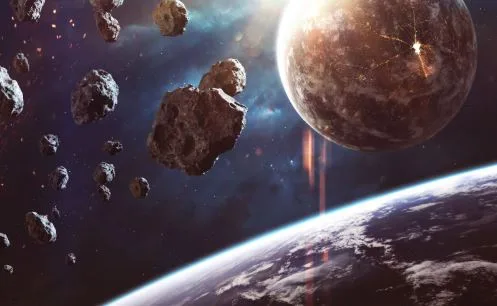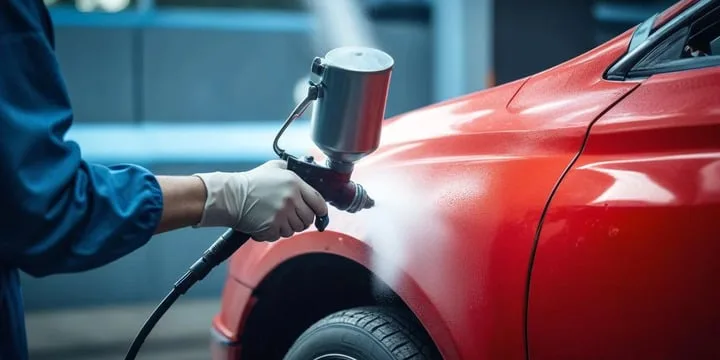Space Mining’s Biggest Obstacle Isn’t Technology – It’s Politics
When most people think of the challenges of space mining, they picture technical problems: drilling into asteroids, landing robots on the Moon, or building equipment that can survive harsh environments. But the biggest challenge isn’t building the machines – it’s getting the world to agree on how, when, and who gets to mine space.
Yes, space mining is advancing fast. But unless governments and companies can sort out the politics, legal rights, and ownership questions, the entire industry could stall before it really begins.
The Promise of Space Mining
The truth is, Space mining offers real potential:
- Access to rare metals like platinum, cobalt, and nickel
- Water ice that can be turned into rocket fuel
- Long-term support for Moon or Mars colonies
- A way to reduce the strain on Earth’s resources
And it’s not a far-off fantasy – space mining is already being tested. Robotic missions, private companies, and national space programs are all exploring how to extract resources from asteroids and the Moon. But while the technology is moving forward, the laws and politics are not keeping up.
Why Politics Matters in Space Mining
Imagine a company lands on an asteroid filled with platinum. Who owns it? Can anyone claim it? What if two countries try to mine the same region of the Moon?
These aren’t science fiction questions. They’re real problems that need answers before space mining can become a real business.
At the heart of the issue is this: Space doesn’t belong to anyone – yet everyone wants a piece.
The Outer Space Treaty: Great for Peace, Not for Mining
The Outer Space Treaty of 1967 is the main international agreement that governs space. It says:
- No country can claim territory in space (Article II).
- Space must be used for the benefit of all humankind.
- Activities in space should be peaceful.
That’s great in theory, but there’s a problem: the treaty was written decades before space mining was realistic. It doesn’t say much about private companies or who owns what’s taken from space.
For example:
- Can a company own minerals it extracts from the Moon?
- Can countries sell mining rights to private firms?
- What happens if mining damages the lunar surface?
The treaty leaves these questions wide open – and that’s causing tension.
The Artemis Accords: A New Direction (But Not for Everyone)
In 2020, NASA introduced the Artemis Accords – a set of agreements for countries that want to cooperate on Moon exploration and future space activities.
The Accords allow for:
- Extraction and ownership of space resources
- Creation of “safety zones” around mining sites
- Voluntary sharing of scientific data
More than 30 countries have signed on – including the U.S., Japan, Australia, and the U.K.
But major space powers like Russia and China have not. In fact, they’ve openly criticized the Accords as a way for the U.S. to dominate space.
This disagreement creates a fragmented legal landscape, with countries following different rules. That’s risky – especially when we’re talking about trillion-dollar resources.
The Risk of Conflict
What happens when two countries claim the same asteroid? Or when a mining operation accidentally damages someone else’s satellite?
Without strong international laws and clear cooperation, space mining could lead to:
- Legal battles over ownership and damage
- Conflicts between countries
- Delays in projects due to uncertainty
In other words, space mining might spark the next great geopolitical struggle, especially if the rewards are massive.
Private Companies, Public Rules
It’s not just countries involved. Private companies like Asteroid Mining Corporation, ispace, and Planetary Resources (now part of ConsenSys) are developing real mining tech.
These companies need clear laws too:
- Can they keep what they mine?
- Do they need permission from governments?
- Who’s responsible if something goes wrong?
In the U.S., the Commercial Space Launch Competitiveness Act (2015) gives companies the right to own resources they mine in space. Luxembourg and the UAE have passed similar laws.
But again, these are national laws, not global ones. That leads to confusion – and possibly, a legal race to the bottom.
Environmental Politics in Space
Yes – there’s even talk about space environmentalism.
Some scientists and ethicists warn that space mining could harm delicate environments:
- The Moon has no atmosphere to heal damage
- Asteroid mining could create dangerous debris
- There’s no cleanup crew in orbit
If space becomes the next “Wild West,” we could see:
- Dust storms from landers contaminating telescopes
- Debris crashing into other satellites
- Long-term changes to surfaces we haven’t even fully studied
This raises political questions:
- Should space mining be regulated like mining on Earth?
- Who decides what “environmentally safe” means in space?
If we don’t address these questions now, we risk repeating the environmental mistakes of Earth – only this time, on a much larger and harder-to-fix scale.
What Needs to Happen Next
If space mining is going to succeed, we need more than rockets – we need rules. That means:
1. Global Cooperation
We need more countries – including China and Russia – involved in writing space mining rules. The Moon, Mars, and asteroids belong to all humanity, so the framework has to be global.
2. Updated Treaties
The Outer Space Treaty is outdated. A new agreement or a major update is needed to:
- Define ownership of extracted resources
- Protect against overuse or environmental harm
- Set standards for safety and conflict resolution
3. Public-Private Agreements
Governments and private companies must work together. Think of it like this:
- Governments provide the legal framework
- Companies provide the tech and investment
- Both benefit – and avoid chaos
4. Dispute Resolution Systems
Right now, if two companies or countries argue over a space rock, there’s no court to settle the issue. The United Nations or another international body may need to create a space resource court to handle disputes.
Without these steps, the future of space mining could descend into confusion, competition, and even conflict – before it ever gets off the ground.
What This Means for Earth
This all matters even if you’re not planning to mine an asteroid anytime soon. Space mining could reduce the pressure we’re putting on Earth’s ecosystems by allowing us to source rare elements from elsewhere. It could also help power the future – supporting clean energy technologies and electric vehicles.
Beyond that, it may be the key to enabling a permanent human presence in space. And perhaps most importantly, it could dramatically shift global power dynamics, depending on which nations or companies lead the way. That’s why the politics of space mining isn’t just a side issue – it’s the issue.
The Clock Is Ticking
We already have the robots, the rockets, and the roadmaps. What we don’t have yet is the agreement. Until we do, the future of space mining will remain stuck in legal limbo.
If humanity wants to dig into the stars without digging into conflict, it’s time to stop arguing and start cooperating. Because the race to mine space isn’t just about resources – it’s about responsibility.





